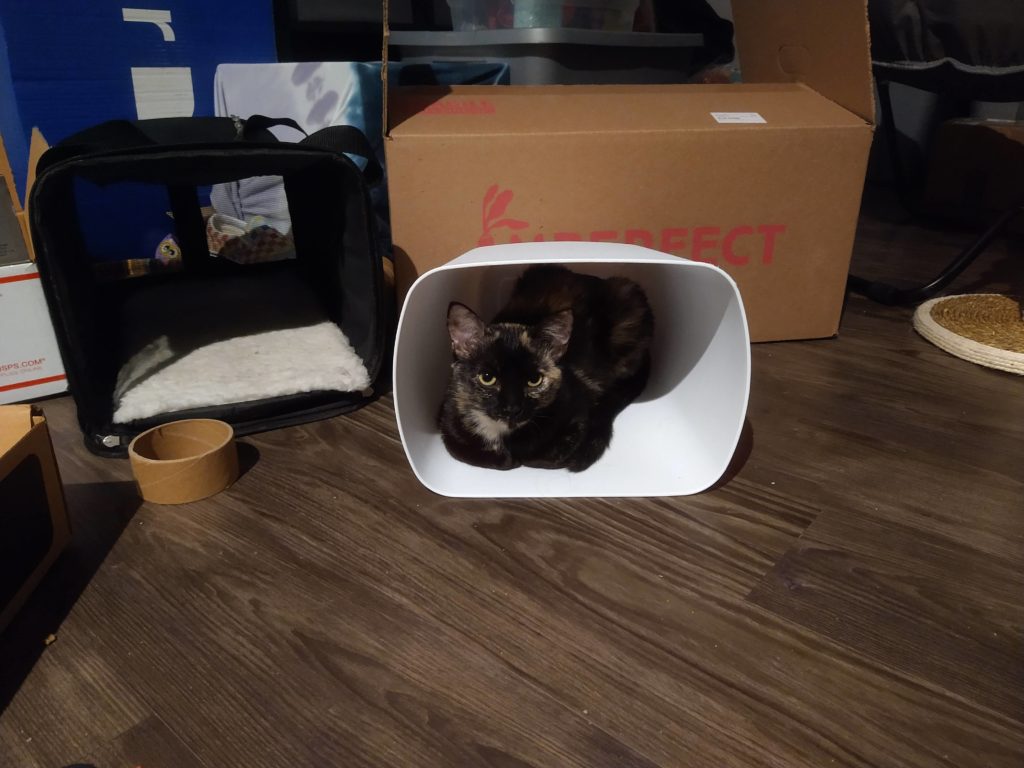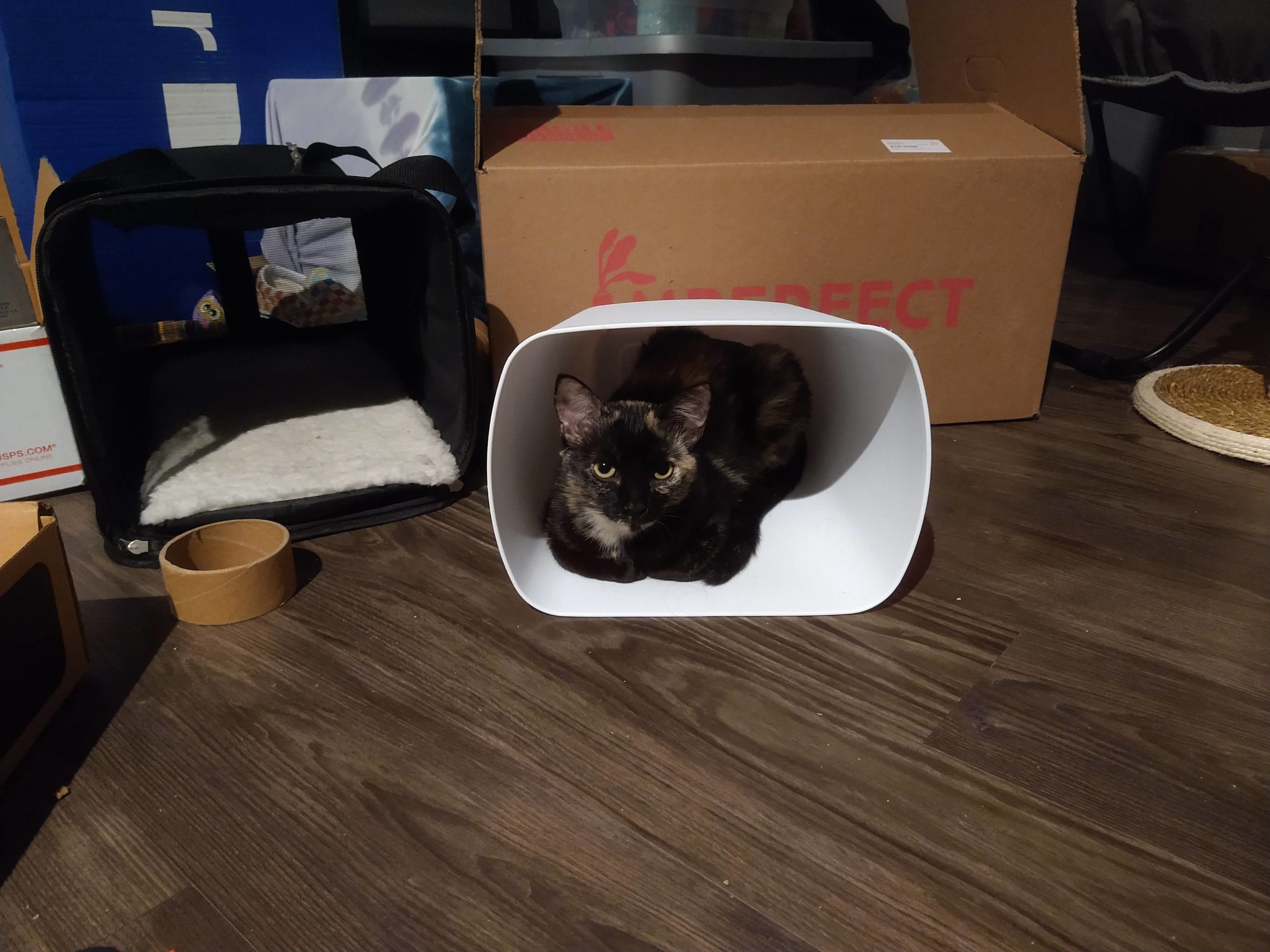10 Things Cats Do When They’re Bored
When cats are bored, they communicate to their owners using a range of behaviors to communicate their restlessness and desire for stimulation. Sometimes, these behaviors are harmful to themselves.
Indoor cats need artificial enrichment that stimulates the real thing, to avoid obesity, depression and other feline diseases.
Unwanted behaviors cats do when they’re bored
Many unwanted behaviors cats engage in are caused by boredom, not because your cat is “bad”.
1. Destructive behavior
Cats resort to destructive behavior when their needs aren’t being met and you haven’t responded to their other attempts at communication. This includes:
- Scratching furniture
- Knocking over objects
- Chewing on inappropriate items
Scratching furniture
Cats scratch furniture when they have no better alternatives and for attention. Cats need attention — it’s not a bad thing. Acting out for attention when they’re deprived of it is how they communicate to you that their needs aren’t being met.
Place at least one scratching object in every room that your cat has easy access to.
Knocking over objects
Some cats knock objects over because they’re curious. If your cat is knocking your things off of counters, tables and other surfaces, it’s because they’re bored.
Skittish cats who don’t like the sound of things falling or crashing, who knock things over anyway, are desperately trying to communicate something to you. Usually, this is boredom and the object fell off while they were playing with it (coincidentally).
Chewing on inappropriate items
Feline pica is when your cat chews on, or even eats, things they shouldn’t, including:
- Metal
- Door frames, doors
- Wires and cords
- Plastic
- Your hair
You can resolve this behavior by redirecting your cat to chewing on cat-friendly chew toys instead. If you want to go beyond the basic cat toy, seek out cat-safe toys specifically for chewing. These will help with their dental hygiene.
2. Excessive vocalization
When the quieter behaviors don’t amount to anything, your cat will seek your attention by making noise.
Meowing
Contrary to popular opinion, not every cat meows. Some cats only meow when they’re trying to communicate with you, lost their toy and can’t reach it, or are crying over something you have zero control of (like a bug on the ceiling they can’t reach).
A bored cat may meow constantly, because they have nothing else to do. The more you get to know your cat, the more you’ll learn what each of their meows means.
Yowling or caterwauling
Yowling is different from meowing. It’s more high-pitched and a bit annoying.
Cats caterwaul when they’re in pain, anxious, bored, complaining, seeking attention, or trying to find a mate (before they’re spayed/neutered).
3. Aggression
When cats are aggressive, it’s typically due to one of three reasons:
- Pain
- Fear
- Boredom
If you’ve confirmed your cat is not in pain or terrified, they’re most likely just bored. Cats need to play hunt and run to get out a lot of their energy. When they can’t do those things, that energy builds up. To express this energy, they may bite, scratch or attack your feet and hands.
Cats with excessive energy are like jitterbugs or jumping beans. They can’t keep still, need to run everywhere, etc. Your cat isn’t purposely aggressive; they are more or less “too excited” and have no other way to calm down (because they can’t express it better).
4. Excessive grooming
Bored cats have little to do all day besides eat, sleep and use the litter box. As a result, they may lick themselves to the point of irritating their skin, or pull out their fur.
Excessive grooming may also lead to “hot spots”, which are itchy, bloody rashes all over their bodies that can get infected.
Lethargic behaviors

On the other end of the boredom spectrum, bored cats may not engage in many active behaviors, such as:
- Sleeping more than usual
- Having no interest in playtime
- Laying around looking bored
1. Sleeping more than usual
What do you do when you’re bored? Probably scroll videos on your phone or lounge about your home, not really doing anything, no?
Cats are similar. Bored cats will sleep more than is typical for them. You might even wonder if your cat is depressed or ill, because it seems like they’re sleeping too much.
2. Having no interest in playtime
If your cat never wants to play or doesn’t want to play anymore — and pain and illness have been ruled out — they’re bored. Your cat may be tired of their existing toys (which is why you should rotate your cat’s toys and/or keep “special” toys hidden outside of your designated playtime).
3. Lying around looking bored
Bored cats may lay about doing nothing and watching everything. They might also stare at you, watching for any signs that you’re about to do something interesting!
Recognizing when cats are bored and providing appropriate outlets like play, puzzle toys and quality time can prevent destructive behaviors and keep cats happy and enriched. It’ll also help decrease any anxiety they have and give you more opportunities to bond with them.
